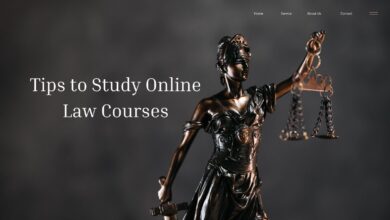5 Mistakes Students Make While Using Expressive Text In Research

Have you ever been expressive in your research writing? I mean being very personal and sharing your thoughts, feelings, and beliefs about a phenomenon you are studying. If yes, then you must have done it through the use of expressive text in your research writing. As the name suggests, this text is expressive means you express your ideas and thoughts. However, it is not as easy as it looks. Expressing yourself in a very well-mannered and producing research writing free of mistakes is a challenging task. The reason is that mistakes are part of any kind of writing. They may become a part of your expressive text in research. However, you must know what those mistakes are and avoid them in the future.
I know now you are eagerly waiting to learn about those mistakes. Do not rush because this 4-minute-read article is all about describing those mistakes in detail. However, before moving on to the mistakes, let’s define the expressive text in research and highlight its characteristics. So, let’s start the discussion with the question below.
What is expressive text in research? Explain its characteristics.
An expressive text is a text which is intended to communicate the thoughts, desires, and feelings of the writer about the research phenomenon. Its main function is to send the message of the author about the research area. This kind of text is aslo called symptomatic text. The memories of the author related to the research are also termed symptomatic text. However, the primary examples of this type of text are personal essays, narratives, and personal commentaries on a research paper.
Characteristics of symptomatic text
Not very common in research writings, but still, this text is used in commentaries. Due to its usage, it has some characteristics that you must be aware of. What are the characteristics of this text? A brief description of the major ones is as follows:
- The use of the first person (I and we) dominates in this writing. The reason is that the writer expresses his feelings about a research area through this text.
- The use of exclamatory expressions when writing this text is common. The writer has to communicate his feelings well, so he can only do this by using those expressions.
- Such texts use qualifying adjectives to judge anything or a situation. The use of qualifying objectives makes communication effective.
- The subjectivity of this text allows the use of metaphors and similies in this text. It is because sometimes the writer needs to compare his narrative with something else.
5 common mistakes students make while using expressive texts
After reading the information above, the base is now set for discussing the common mistakes. You have a good of what this text is and its characteristics. So, a brief description of the 5 most common mistakes students make is as follows:
1. Deprive their readers of interest
When writing in an expressive tone in research writing, the interest of the readers is of utmost importance. It is because narratives or personal commentaries on anything become successful when they succeed in grabbing the attention of the reader. So, what do most students do? They deprive their readers of interest and just start describing their feelings and emotions from the start. It is a very wrong practice as it won’t bring anything. Therefore, as a student writer, you must create some kind of suspense and interest in your text.
2. In a desire to be authentic, they include too much information
Including too much information is another mistake students make when using expressive text in research. Mostly, the students do not have this much knowledge about writing. They take masters dissertation help and ask them to add much information so that their text looks authentic and original. However, this desire of students can cost them heavily. Exaggerating the ideas and the writing without any clear reason annoys the readers. Therefore, keep your text short and only include relevant information.
3. Fail to go deep into the plot
Failure to geep into the plot is another common mistake that students make. They think that creating interest in the text is important. Undoubtedly, interest is important, but at the start of the text. It is totally wrong that throughout the text, you focus on creating interest instead of explaining the phenomenon. Therefore, as a writer, you must go deep into each detail of the plot while maintaining the interest of the readers. Describe each part of your experience related to the research topic of phenomena you are writing about.
4. Fear of self-disclosure
As described earlier, an expressive text in research is about expressing your thoughts, feelings, and ideas. So, what do most students do? In fear of self-disclosure or disclosure of their ideas and thoughts, they do not pay proper attention to the main points of the research. They do not give proper information and fail to tell the readers about the most important things associated with the research area. This should not be the case, and students must avoid making such a mistake.
5. They hide their failures
It is not possible that a student has never seen failure in his academic or personal life. In his experiences, failures must be there. The number 5th mistake is related to this. Most students hide their failures in expressive texts and appear as successful people. It is a very wrong practice because you must not hide your real identity. Explain everything related to the research topic that has happened to you. It is because the reader wants to know how you kept going amid lots of failures. Therefore, do not try to hide failures or setbacks.
What are 10 errors students make when writing?
Writing is a fundamental skill that students must learn to succeed academically and professionally. However, there are common mistakes that many students make when writing that can hinder their ability to convey their ideas effectively. Here are ten errors students often make when writing:
- Lack of planning: Many students jump straight into writing without planning their work, leading to sloppy and unclear writing.
- Poor grammar and punctuation: Incorrect grammar and punctuation can make the text difficult to read and understand.
- Weak thesis statements: A weak thesis statement can lead to unfocused writing, making it difficult for the reader to understand the paper’s main idea.
- Lack of evidence: Students often fail to provide enough evidence to support their arguments, leaving the reader unconvinced.
- Overuse of quotes: Overusing quotes can make the paper seem like a collection of other people’s ideas rather than the student’s thoughts.
- Inconsistent tense: Inconsistent tense can confuse the reader and make the writing difficult to follow.
- Lack of transitions: Lack of transitions can make the text feel disjointed and hard to follow.
- Plagiarism: Plagiarism is a serious offense and can lead to disciplinary action.
- Lack of proofreading: Failing to proofread can lead to typos, grammatical errors, and other mistakes that can detract from the quality of the writing.
- Not following instructions: Students must carefully read and follow instructions to meet the assignment requirements.
Students can improve their writing and effectively convey their ideas to their readers by avoiding these common errors.
Conclusion
Conclusively, using expressive text in research requires utmost care and attention. One mistake can ruin all the efforts and energy that you spend on writing that text. So, keep the mistakes mentioned above in mind and try to avoid them in your next symptomatic text. Once you do this, believe me, you are going to enjoy success.



